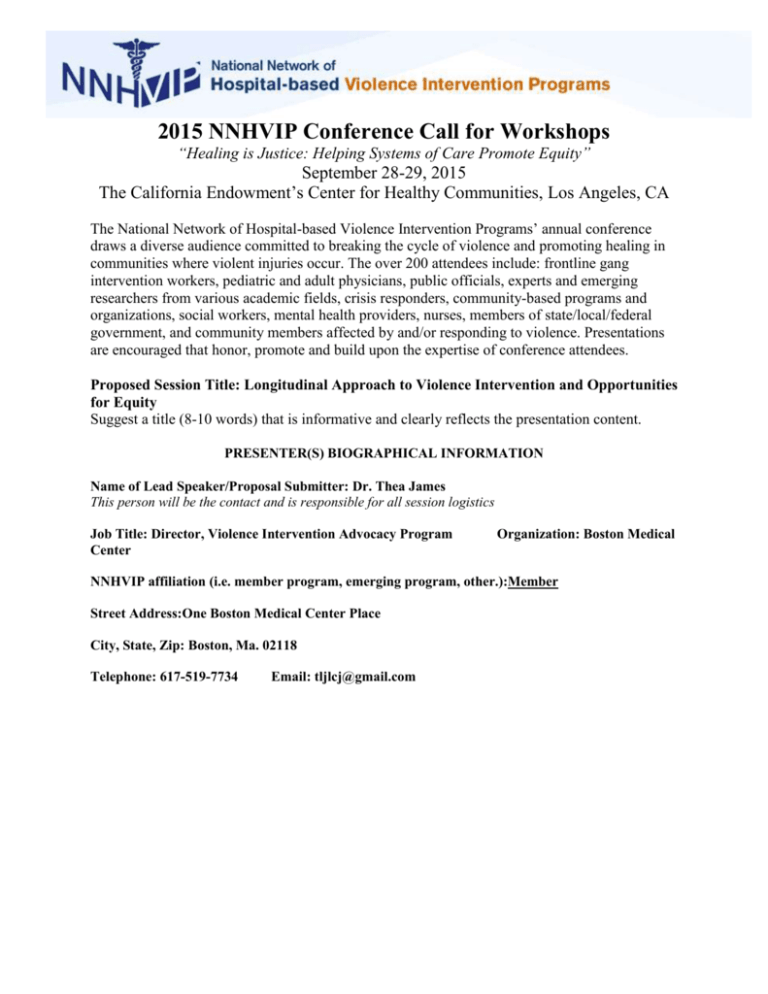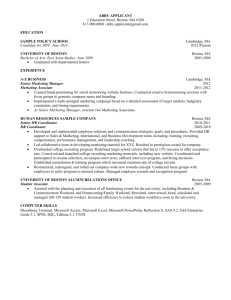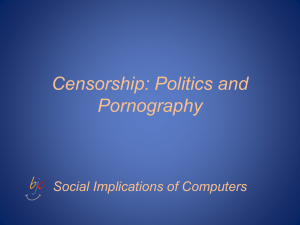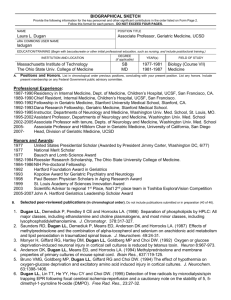Application - National Network of Hospital
advertisement

2015 NNHVIP Conference Call for Workshops “Healing is Justice: Helping Systems of Care Promote Equity” September 28-29, 2015 The California Endowment’s Center for Healthy Communities, Los Angeles, CA The National Network of Hospital-based Violence Intervention Programs’ annual conference draws a diverse audience committed to breaking the cycle of violence and promoting healing in communities where violent injuries occur. The over 200 attendees include: frontline gang intervention workers, pediatric and adult physicians, public officials, experts and emerging researchers from various academic fields, crisis responders, community-based programs and organizations, social workers, mental health providers, nurses, members of state/local/federal government, and community members affected by and/or responding to violence. Presentations are encouraged that honor, promote and build upon the expertise of conference attendees. Proposed Session Title: Longitudinal Approach to Violence Intervention and Opportunities for Equity Suggest a title (8-10 words) that is informative and clearly reflects the presentation content. PRESENTER(S) BIOGRAPHICAL INFORMATION Name of Lead Speaker/Proposal Submitter: Dr. Thea James This person will be the contact and is responsible for all session logistics Job Title: Director, Violence Intervention Advocacy Program Center Organization: Boston Medical NNHVIP affiliation (i.e. member program, emerging program, other.):Member Street Address:One Boston Medical Center Place City, State, Zip: Boston, Ma. 02118 Telephone: 617-519-7734 Email: tljlcj@gmail.com NNHVIP 2015 Conference Call for Workshops Page 2 of 5 Additional Speakers: If applicable, identify any additional speakers below with e-mail and phone information. Name E-mail address Phone # Elizabeth Dugan, LICSW elizabeth.dugan@bmc.org 617-414-4926 Lisa Allee, LICSW lisa.allee@bmc.org 617-414-8007 Professional Background: Provide a 1-4 sentence biography for each speaker to be used as an introduction as well as an overview of your knowledge and experience related to the proposed session topic and HVIP field; i.e.: years of experience in the related field, degrees held and from what academic institutions, current appointments, concurrent responsibilities, areas of specialty, past speaking engagements, etc. Dr. Thea L. James is an Associate Professor of Emergency Medicine at Boston Medical Center/Boston University School of Medicine, and President of the Boston Medical and Dental Faculty. She is also the Director of the Boston Medical Center site of the Massachusetts Violence Intervention Advocacy Program (VIAP). Dr. James has chaired and served on national committees within the Society for Academic Emergency Medicine (SAEM), served as a moderator, and has given public lectures and talks. She was appointed to the SAEM Women in Academic Emergency Medicine Task Force, is a member of the Boston University School of Medicine Admissions Committee, and in 2009, Dr. James was appointed to the Massachusetts Board of Registration in Medicine, where she presently serves as Chair of the Licensing Committee. Dr. James is the 2008 awardee of the David H. Mulligan Award for public service. Dr. James’ passion is in Public Health both domestically and globally. She is a Supervising Medical Officer on the Boston Disaster Medical Assistance Team, under the Department of Health and Human Services, which has responded to several disasters in the United States and across the globe. She has deployed to post 9/11 in NYC, Hurricane Katrina in New Orleans in 2005, Bam, Iran after the earthquake in 2003, and Port-Au-Prince Haiti after the earthquake of 2010.For twelve years Dr. James has traveled to Haiti, with colleagues and emergency medicine residents. A graduate of Georgetown University School of Medicine, James completed an emergency medicine residency at Boston City Hospital, where she was a chief resident. Elizabeth Dugan, MSW, LICSW, is the Program Manager of the Violence Intervention Advocacy Program at Boston Medical Center. In addition to her LICSW, Ms. Dugan holds a Master’s degree from Simmons School of Social Work, where she was the first recipient of the Dean’s Leadership Award. She also earned a certificate in Urban Leadership in Clinical Social Work from Simmons. Her formal training includes certification in Traumatic Stress Studies from the Trauma Center in Brookline, Mass. Ms. Dugan trained at the Children’s Trauma Recovery Foundation, and is certified in school and community-based Post Traumatic Stress Management (PTSM) through the Trauma Response Networks (TRN). Ms. Dugan has served on the Board of Directors for Victory Programs, a Boston-based agency serving clients with substance abuse, homelessness and/or HIV/AIDS for the last 19 years. She also serves on the Board of Directors of the St. Francis House, the largest day shelter in Boston. St. Francis House provides a host of comprehensive services ranging from food and shelter to vocational training and healthcare services. Lisa Allee, MSW, LICSW is the Founder and Director of the Community Violence Response Team (CVRT). She holds her Masters in Social Work degree from the University of Pennsylvania. Lisa serves as the hospital's Injury Prevention Coordinator and is the Director of Programs and Education for BMC's Injury Prevention Center. She has been at Boston Medical Center for 16 years and is on faculty at Boston University's School of Medicine as Instructor of Surgery. Lisa is dedicated to efforts to prevent injuries across the lifespan but has a particular interest in violence intervention and prevention efforts. She cochairs the state's core injury grant partner group Massachusetts Prevents Injuries Now Network NNHVIP 2015 Conference Call for Workshops Page 3 of 5 (MassPINN) and Chairs the state and region 1's Trauma Center Injury Prevention Coordinator Consortiums. NNHVIP 2015 Conference Call for Workshops Page 4 of 5 PRESENTATION DESCRIPTION Presentation Learning Objectives: List 3 educational goals of the presentation that specify what participants will learn as a result of attending the presentation. (NNHVIP reserves the right to edit objectives to meet requirements for CEUs) 1. Participants will be able to identify opportunities for equity to improve 5 years of program longitudinal outcomes and access to victims of violence. 2. Participants will be able to identify 3 ways violence intervention programs can cultivate a more effective and sustainable system for longitudinal follow up. 3. Participants will be able to identify resources (new and existing) to support longitudinal program research and evaluation . Session Categories: Check one or more categories that best represent the focus area of the presentation. ☒ Promoting Equity / Addressing Bias ☒ Best Practices in Direct Services ☐ Policy and/or Advocacy ☒ Trauma-Informed Care ☐ Bridging Direct Service & Advocacy ☒ Mental Health ☒ Research ☒ Hospital-Community Partnership ☐ Other: Click here to enter text. ☐ Healing the Healers / Self-Care I submit this workshop proposal for consideration for the preferred following event format(s): (Check all that apply) Presentation Length: ☒ 90 minute breakout session ☐ 40 minute presentation to be paired with another presentation on a similar topic Presentation Format: ☐ Presentation (with or without Q&A to follow) ☒ Interactive training or conversation (At this year’s conference, the planning committee is giving special consideration to interactive workshops that build on the skills and expertise of audience members. If checked, please specify what methods will be used to ensure audience participation and interaction on the topic presented.) Audience participation will be encouraged. Small groups and topic specific dialog will be assigned, with reporting back to larger group will occur. Expertise in the room will be identified for small group break out, and experiences will be utilized to the fullest extent for live examples. NNHVIP 2015 Conference Call for Workshops Page 5 of 5 Session Narrative: Please summarize the presentation in no more than 500 words). This will be utilized to evaluate the overall relevance and quality of the proposed presentation. If your presentation is selected, this narrative will also be adapted for the Conference Program. Improving services for victims of violence will ultimately enable providers to evaluate program effectiveness longitudinally. Lack of a comprehensive, equitable continuum of care system and stable environments are huge barriers to optimal opportunities to assess program impact and client outcomes longitudinally (minimum of 5 years). Providing a more equitable and comprehensive continuum of care for victims of violence will enhance outcome measures while promoting opportunities to capture invaluable, nuanced information longitudinally;longitudinal studies will inform us. Promoting equity by taking advantage of opportunities for sustainability in health care and program services such as the Affordable Care Act (ACA), and state and local government opportunities can highlight violence as the public health issue that it truly is. Integration of (HBVIP) services into clinical care post injury, embedded in the medical home, positions clients for a healthy recovery. Program partnerships with community based organizations is critical for continuity, equitable sustainable service provision and positive longitudinal outcome trajectories. Raising the consciousness of all about social determinents of health, and providing services to address these, can translate into optimal services for clients. Ideal community partnerships include professionals in mental health, physical recovery, housing, educational and vocational opportunities, and community engagement. These partnerships support better opportunities for long term access to clients, and increases the probability that these clients would be able to be followed long term.These variables are often unmeasured with this population, which can result in the services offered not meeting the needs of the population. A more effective system is needed to follow victims of violence long term, and to better understand exactly what impacts positive outcomes longitudinally. Mobilizing existing internal resources (Graduate and Medical Students, residents) enhances opportunites for data gathering, analysis and funding. Partnering with academic institutions supports the need for ongoing evaluation, and minimize the cost to already overburdened programs. Presentation Agreement: Submit my PowerPoint presentation via email or flash drive no later than September 21, 2015. Provide all required information and affirmations for CEU certification, by due dates requested. Prepare, duplicate, and distribute handout materials for my presentation at my expense. Allow NNHVIP to list my contact information on printed and online materials. Presenters may not sell, promote or pitch any specific product or service. I understand NNHVIP cannot pay honoraria, travel, per diem, handouts or other costs for speakers. In appreciation for your contribution, one approved speaker may attend the conference at no cost for registration. By submitting your presentation, you are agreeing to the presentation agreement. *** Email submissions by May 1, 2015, to Ahmed Ali-Bob at ahmed@youthalive.org ***








